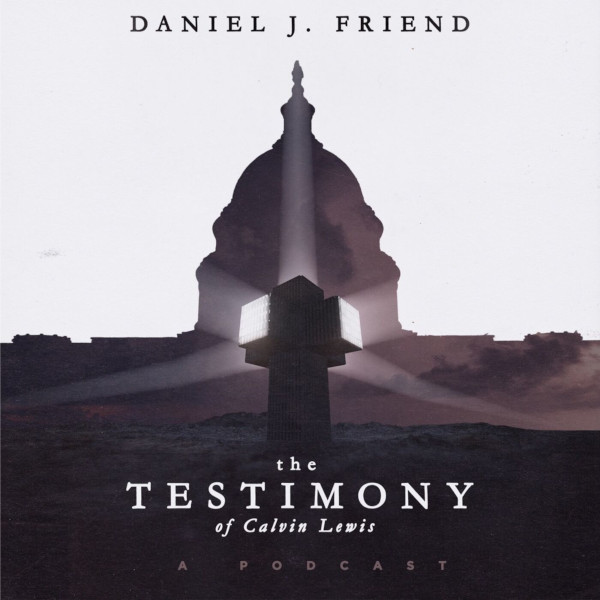The Testimony of Calvin Lewis
Full Cast Science Fiction Thriller Series
August Williams, a young World War III veteran, is recruited by the Department of Health and Human Services to be a trial patient for the new Uberman Device, which allows users to access their past memories in a vivid, dreamlike world.
The therapist guiding him at the government agency urges him to destroy a mysterious object at the center of his memoryscape, claiming that it's a source of psychological trauma. But some quietly caution him otherwise, saying the object is vital to one's humanity. Faced with uncertainty, August must weigh his choices carefully to determine whether the HHS is pushing him to overcome pain or if he has stumbled upon a dreadful conspiracy.
Told from the perspective of a U.S. senator, The Testimony of Calvin Lewis draws heavily upon works like C.S. Lewis' Abolition of Man and Augustine's Confessions. Where the world teaches that we can deconstruct morality and condition for ourselves what we deem to be right and wrong, Lewis and Augustine followed a traditional line of thinking rooted in Scripture that teaches the Law of God has been written on our hearts, and we can either follow after it as the lodestar for our lives or we can distort what is good and be left to the corruption of our own making.
The therapist guiding him at the government agency urges him to destroy a mysterious object at the center of his memoryscape, claiming that it's a source of psychological trauma. But some quietly caution him otherwise, saying the object is vital to one's humanity. Faced with uncertainty, August must weigh his choices carefully to determine whether the HHS is pushing him to overcome pain or if he has stumbled upon a dreadful conspiracy.
Told from the perspective of a U.S. senator, The Testimony of Calvin Lewis draws heavily upon works like C.S. Lewis' Abolition of Man and Augustine's Confessions. Where the world teaches that we can deconstruct morality and condition for ourselves what we deem to be right and wrong, Lewis and Augustine followed a traditional line of thinking rooted in Scripture that teaches the Law of God has been written on our hearts, and we can either follow after it as the lodestar for our lives or we can distort what is good and be left to the corruption of our own making.
